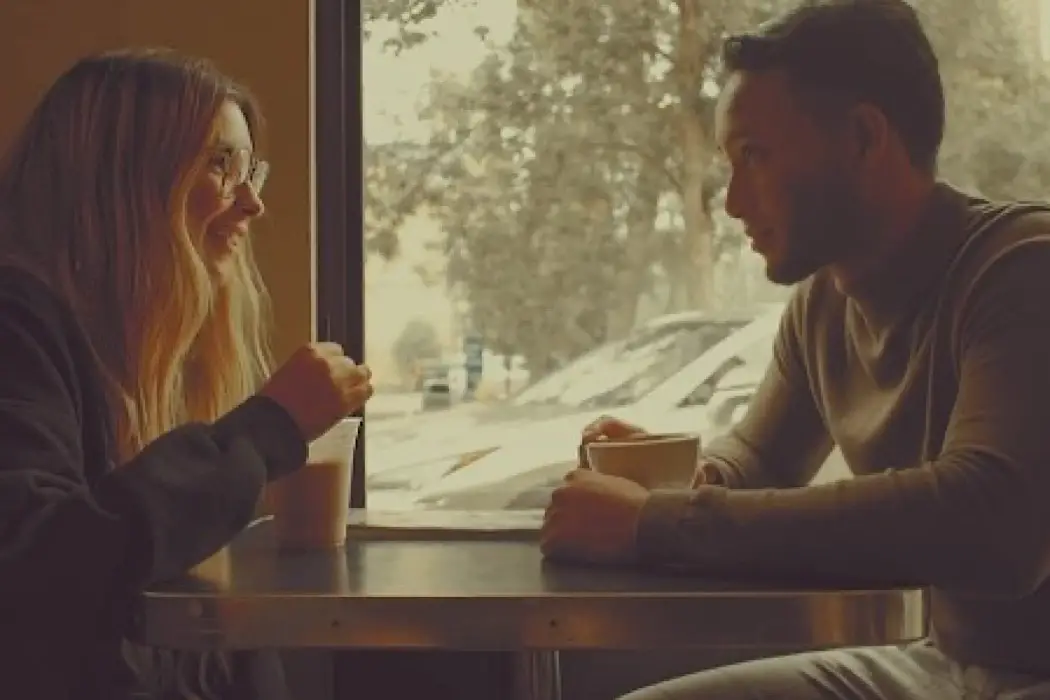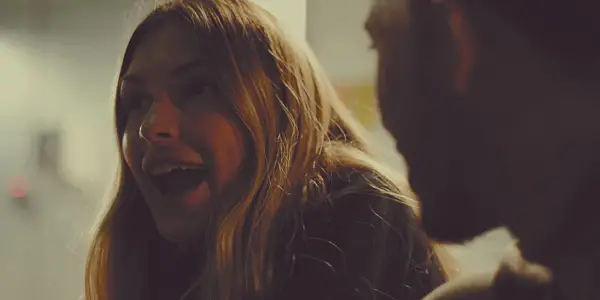RETROCAUSALITY: A Thought Experiment On Love And Loss

I am a husband, father, and teacher in the upstate…
In 1833, Arthur Henry Hallam died of a cerebral hemorrhage at the age of twenty-two. Sixteen years later, Hallam’s friend Alfred, Lord Tennyson, published In Memoriam A.H.H., which records his reflections and feelings about his friend’s death.
One of the most quoted passages from the poem is often used to console people who have recently been a part of relationships that have dissolved: “‘Tis better to have loved and lost/ Than never to have loved at all.” In Retrocausality, directors Kristian Diaz and Michael Manus explore whether it is better to have loved and lost, or if you, by some magic, knew the outcome of a relationship, would a person choose to never love at all.
Flashbacks, the Present, and the Future?
Retrocausality focuses mainly on Scott Blue, played by Kristian Diaz, who struggles to talk to women and to commit to relationships, and Max, played by Elisabeth Rioux, who plays the thankless role of Scott’s love interest. The plot of the film is difficult to describe because it intercuts between past, present, and future to explain Scott’s hesitancy with relationships and to explore the possible implications of whether or not he chooses to talk to Max, who he runs into three times in the course of the film: once as a child after she had broken up with her boyfriend, once at the hospital where Scott’s mom is dying, and once at the train station where he saves her from a mugger.

The film is narrated by what appears to be an older Scott, voiced by Eric Little, whose voice throughout the film sounds like a poor Barry White impression. By some means of time travel, the narrator, or older Scott, travels back in time to the hospital where Scott’s mom is dying to warn him of the consequences of talking to Max. According to the narrator and an animated and live-action montage, if Scott talks to Max, he will marry her, they will have a kid, she will leave for college for a part of their marriage, the kid will then leave for college, and then eventually Max will die, leaving him alone. The choice that Scott has to make in the film is whether or not he is going to choose to talk to Max with the knowledge that he will be left to die completely alone when he is older.
A Short and Overstuffed Narrative
The film is asking an interesting question by exploring the ideas of choice and the fact that loving others is always a risk because even faithful fifty-year marriages end in the death of one or the other person. The film explores Scott’s fear of rejection and abandonment, which stems from his father leaving him and his mother before he was born and from his difficulty making friends in school. The film has a lot of pieces that could make both an interesting character study and a philosophical reflection on love, loss, and choice, but it is not executed well.

The film is only an hour and thirteen minutes long and has a lot packed into it, including a reference to Max’s recent diagnosis with COVID-19, which doesn’t seem to hinder her possible future with Scott or inhibit her life at the moment at all. The film is beautifully shot by Michael Manus, but the story leans too heavily on exposition from the narrator and does not spend enough time allowing the characters to talk, interact, or develop the story on their own.
The film suffers from the narrator whose clunky lines come across as annoying after ten minutes into the film and because the transitions in time leave the viewer wondering what actually happened in the story and what are the characters’ motivations outside of the present version of Scott.
Acting without Words
Actors can convey a lot in a film with their bodies and faces. Stories can move along perfectly without words, but the way that this film was constructed left the actors in the weird situation of mostly sitting or standing and awkwardly staring and making uncomfortable faces, especially in Diaz’s role as Scott. Rioux’s sole job in the film is to be, as the narrator asserts, “quite possibly the most beautiful girl in the world.”
The film mentions that she inexplicably turned down a full-ride to Cornell. In one scene, she talks to her doctor who says that she has a choice to make but information about the choice is never revealed and she doesn’t receive a lot of room to perform outside of serving as eye candy to Scott and the audience.
Conclusion
Manus’ eye behind the camera and the beautiful scenery that he captures of Alberta, Canada, is the most striking part of Retrocausality. The film is not long and if the concept strikes your interest, the ill-arranged intercutting of past, present, and future will give you a puzzle to sort out for the rest of the day.
Have you seen Retrocausality? What did you think? Let us know in the comments below!
Watch Retrocausality
Does content like this matter to you?
Become a Member and support film journalism. Unlock access to all of Film Inquiry`s great articles. Join a community of like-minded readers who are passionate about cinema - get access to our private members Network, give back to independent filmmakers, and more.













